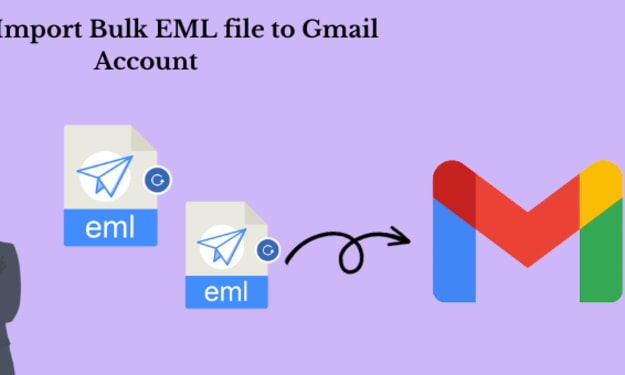Why Are Some People Having Such A Hard Time Finding A Job?
There are people who spend years "looking" for work, and others who when they become unemployed, are immediately hired again. Why does that happen? In an increasingly competitive world, you need to be noticed to succeed.

Often we are reminded of the "luck" factor, but the truth is that, apart from its influence – minimal, if any – there are a number of factors that line up in the people to whom this usually happens. It is called attitude.
Attitude is the predisposition with which we face something, which also influences (and determines) the outcome. With a good attitude, you're more than halfway to getting a job.
When you have a positive attitude, you are open to new possibilities, new ways, to invent, create, test, do. And that openness, by simple probability, translates into more options and better results.
We are the result of our beliefs. And your beliefs influence the chances of you finding or not finding a job. Beliefs like "no job", "let's see if I can get something" or "they won't call me", are limiting, without you realizing it, your possibilities of success.
If you think there is no job, you will make less of an effort to get it, so you don't have to fight back.
Two other factors, which are also scarce, join the attitude, such as perseverance and effort.
We want results and we want results now, and when we don't have them, we stop making an effort, so the probability of getting results decreases.
Currently, your employ-ability (your chances of finding a job) is determined by several factors:
1. Your education
It is more likely that you will find work in what you have trained for, because although it is not enough, it is necessary as an initial selection criterion.
2. Your experience and/or knowledge
Depending on the position you apply for, more or less experience will be required.
It's the perfect excuse to complain that you can't find a job, but don't forget that many of today's great professionals worked for free in the beginning. Experience has a cost.
Value the opportunities the market gives you.
3. Your skills and competences
Everything you know how to do, whether it's certified or not. There are things that do not require a degree but a skill, a "know-how", which will differentiate you from others.
4. Your network
This is where 1.0 and 2.0 come in. Personal and professional relationships will allow you to access information you may need, and other professionals who can help you.
It's not about forcing yourself to meet people, but about creating your network little by little and, most importantly, taking care of it.
5. Where you are and when you are
It remains one of the most important causes of finding a job: being in the right place at the right time.
The secret is simple: to move, to be, to be visible, to go where there is the least chance. Don't forget that your job is to look for work.
This is what prevents us from finding a job

Although it may seem easy, there are some reasons that make it more difficult for us to find work, sometimes even leading to personal demotivation, for example:
1. People do not know what they want
That is, we have no clear goal to achieve, anything is good, so we focus little and see fewer options.
2. We do not take ourselves seriously
We lack commitment to ourselves. We barely believe ourselves, so we force ourselves less than we should.
3. We lack perseverance and patience
We got bored soon enough trying, and we gave up. We don't give ourselves a chance to get it because we don't give ourselves time.
4. We find it difficult to open our minds to new forms of employment
There are already 110 lifetime positions and permanent contracts. Now we have to work with less fear, more self-confidence and more openness to the environment.
We have to change our beliefs because, without realizing it, they are limiting us by seeing fewer possibilities.
5. Time plays against us
Every day without results takes away your confidence and security and affects your self-esteem. Your only tool is to make the most of your time to get good results.
Employ-ability is the chance you have to find a job. Of course, it increases when you have a positive attitude, empowering beliefs, when you are optimistic, when you are educated and updated, and when you expand your network of professional contacts and become more visible. In short, when you do, you don't just want to do.
While it is true that the reality of work is there, you need to analyze where you are now, where you want to be (what you want to achieve) and what you can do to get there.
Along the way you will have to update yourself, train yourself, open your mind, expand your network of contacts, break down beliefs that are limiting you to achieving change, stop doing unproductive things to better manage your time and differentiate yourself.
5 steps to action

1. Be honest
Are you really looking for a job? Look at how many hours you've spent looking for work in the last two weeks. If you really want to achieve a goal, you have to take it seriously. Analyze your attitude.
2. Your job is to look for a job
Dedicate your "working" hours to create your professional profile, to perfect and innovate your curriculum, to meet other professionals, companies. Manage your time well and invest it in yourself.
3. Connect with you
Take advantage of the fact that you are actively looking for a job to do what you have always wanted to do, work on what you have always wanted to work on. Train yourself to do your best.
4. Try different things
Do what you've never done, to get different results. What could you do that you haven't done before?
5. Work on your personal brand
Differentiate in your saturated market. Interact with other professionals with whom you can create collaborations and synergies.
About the Creator
HowToFind .com
More info at https://howtofind.com






Comments
There are no comments for this story
Be the first to respond and start the conversation.